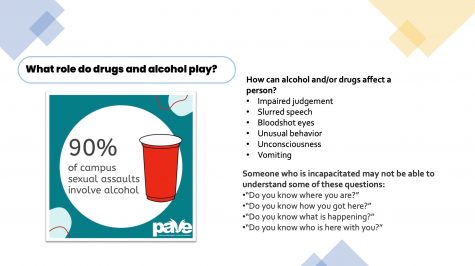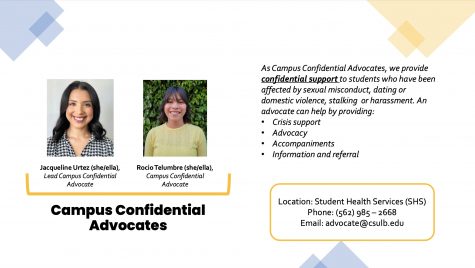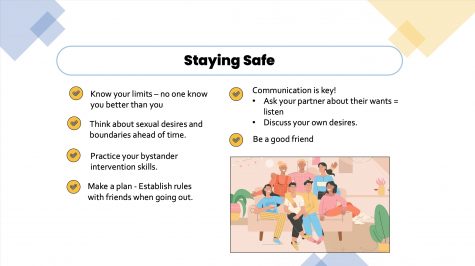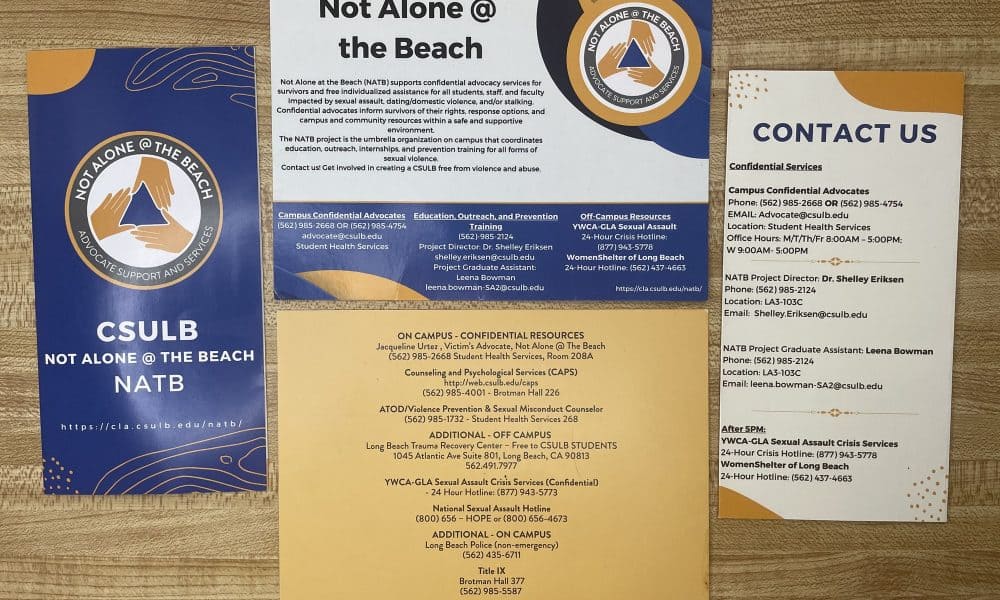Over 30,000 new and returning students arrive at Long Beach State unaware that they are on campus during the phenomenon known as the red zone.
Between the beginning of fall semester and to Thanksgiving break is known as the red zone, where 50% of sexual assaults occur on college campuses.
The time frame coincides with parties and greek life rushing where alcohol and drugs may be present. Students who participate in alcohol or drugs are at risk of becoming victims of sexual assault. 90% of campus assault involves alcohol.

Students who become victims during this time may be clueless or overwhelmed when it comes to figuring out what the next steps are.
Luckily, there are small heroes on campus who work hard in providing a reassuring hand and guidance for sexual education and awareness.
Not Alone At The Beach (NATB), is an organization on campus that continuously works hard to bring attention to matters like the red zone.
Their booth is often seen on Tuesday in front of the Hall of Science Building where they advertise workshops and panels that bring attention to power based violence (sexual violence, human trafficking, stalking and partner abuse) and prevention education.
NATB works closely with student advocates, Title IX and the university police department. They also work with other on-campus organizations as well as off-campus organizations to spread as many resources as they can.
“Knowing that you’re not alone, knowing that you’re worth protection and respect and defending what you want, whether it’s your sexual rights or your personal rights. Education and empowerment are ways you can protect yourself,” said Leena Bowman, lead graduate assistant at NATB.
NATB also stresses on the importance of sexual education, they collaborate with professors across campus by letting professors offer extra credit to students who attend in person or Zoom workshops.
According to Long Beach State’s annual security report, there have been few reports of sexual assaults or harassment. However, most victims may not report a case due to fear, confusion or self blame on an incident.
“The number of students have increased,” said Jacqueline Urtez, the lead campus advocate. “More and more students have become aware of their resources.”
The two campus confidential advocates, Urtez and Rocio Telumbre, provide students a nonjudgmental space to come forward and talk about their situations in confidentiality.

“Our hope is to navigate these very complex situations as well as helping students with finding sources with no judgment,” said Urtez. The advocates lean heavily on NATB for outreach due to them often being busy.
Even the university police is active in providing safety and works closely with both advocates and NATB. Lieutenant Carol Almaguer is no stranger when it comes to dealing with victims and sexual assault.
“I never want victims to think they have no control. They have full control,” Almaguer stated when asked about what a student could do in regards to their next steps.
“I understand if people are triggered by police, and that is understandable. It is ok to go to the advocates or even start off talking to NATB.”
However, if students feel comfortable starting off going to the university police, they can either email their report or go to the station themselves to report a crime.
As the year heads towards its end, students should be aware of who they can talk to along with getting comfortable with these organizations. The red zone is just one of the many things students need to be on the lookout for.

“It’s called Not Alone At the Beach for a reason. You really aren’t alone. Whether that’s people who have similar experience to you, or other people who are passionate about sexual rights and sexual safety,” said Bowman. “There are people out there who care about you, who will listen to you, and there are a lot of opportunities for you to find community. You are not alone.”




